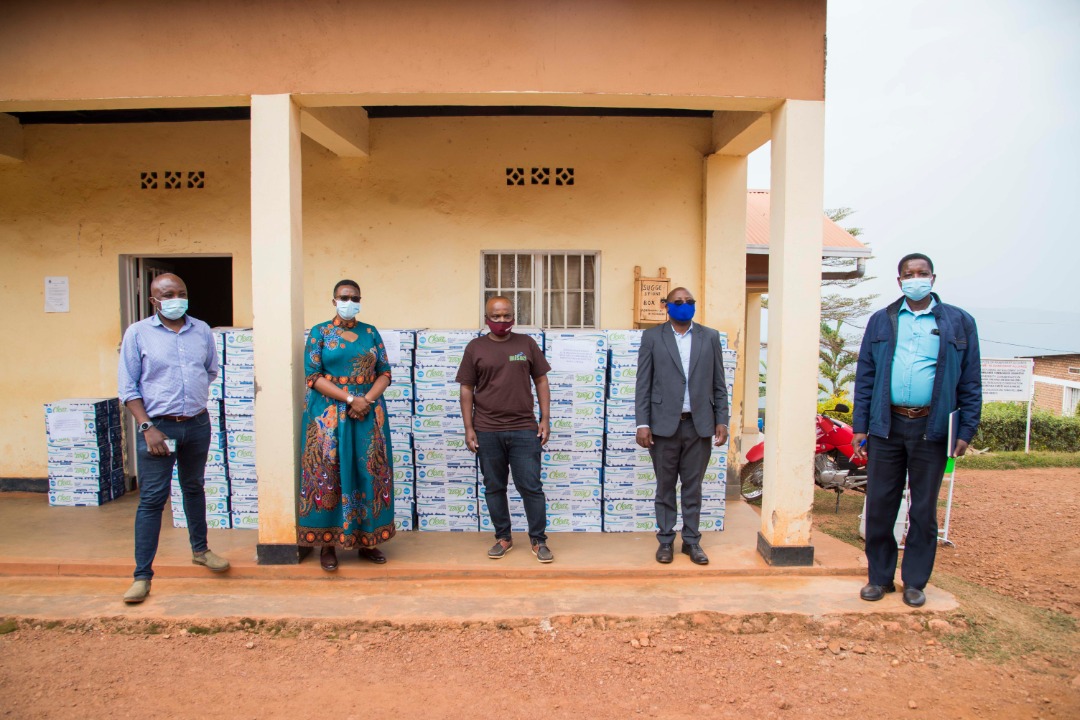
During this global pandemic, one of the most glaring shortages is access to reliable information. That’s particularly true in the rural communities where we work. As public health and economic responses focus on the concerns of dense, urban areas, rural communities are being left behind. But it’s impossible to design an effective response in these communities without information on how the pandemic is impacting them and what steps they’re already taking to respond. That’s why the first priority in Root Capital’s response was to understand how our client agricultural enterprises are experiencing this crisis—so that we can help them build resilience in the face of uncertainty.
In late June, we surveyed about half of our clients to learn about their most pressing needs and challenges (a follow up to our first survey in April). What we found was sobering. But this information has been crucial as we continue to adjust our approach to the rapidly evolving health and economic situation. What follows is a summary of key survey findings in our report, a full version of which can be found here.
Combatting Health and Economic Effects on Farming Families
The community impacts identified in the first survey continued three months later, with the notable persistence of disruptions to transport services (which were reported by 55% of respondents in the most recent survey vs. 66% in April) and government restrictions on movements through curfews, quarantine, and stay-at-home orders. These may feel familiar to urban dwellers around the world, but their impact is particularly acute for farmers in low-income countries who can’t work from home.
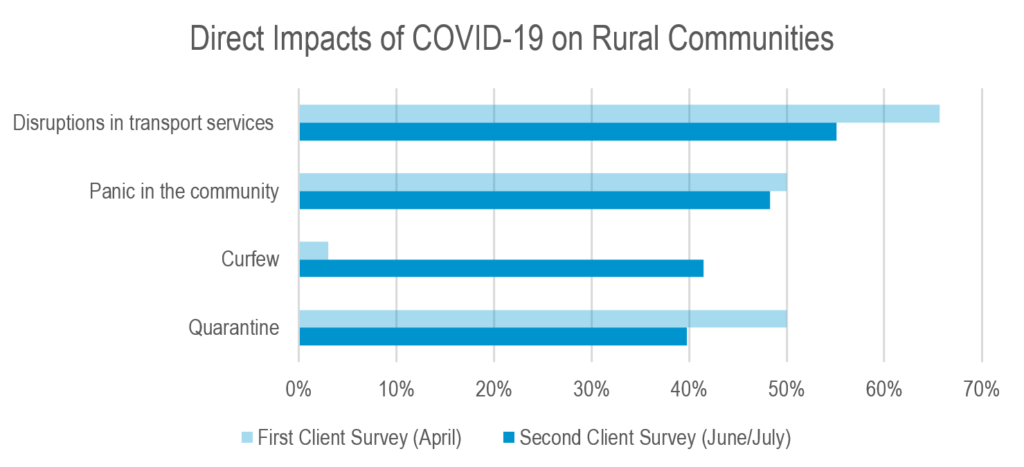
Perhaps as a result of these continuing restrictions, there was a remarkable change in food security between the first and second survey. While 11% reported food shortages in early April, by June that proportion had nearly doubled to 20%. In addition, while the majority of communities didn’t report food shortages, 84% of respondents noted increased difficulty for the community in accessing food. Seventy-two percent also reported a shortage of medical care in their communities.
Fortunately, over 70% of respondents in our second survey reported having programs in place to help their farmers, employees, and communities withstand the impacts of COVID-19. Using their unique position within rural communities, these businesses are protecting incomes through employment security and internal credit funds while providing families with seeds to promote long-term food security. Some enterprises are also delivering personal protective equipment, sanitary materials, and medical supplies to under-resourced communities using grant support from Root Capital and our donors.
Decreases in Supply and Demand Depress Incomes for Businesses
In early April, only 18% of clients reported decreased demand for their products. In our second survey, however, that proportion rose to 43%—most significantly impacting the macadamia nut industry.
On the supply side, the survey revealed that 25% of businesses are facing a labor shortage (vs. only 1% in the first survey) and 19% report a scarcity of inputs vital for production (vs. only 2% in the first survey). This puts this harvest season—and farmer incomes—in jeopardy. In response to the supply and demand shrinkage, many of our clients (45%) are predicting a decrease in the volume they’ll buy from farmers this season.
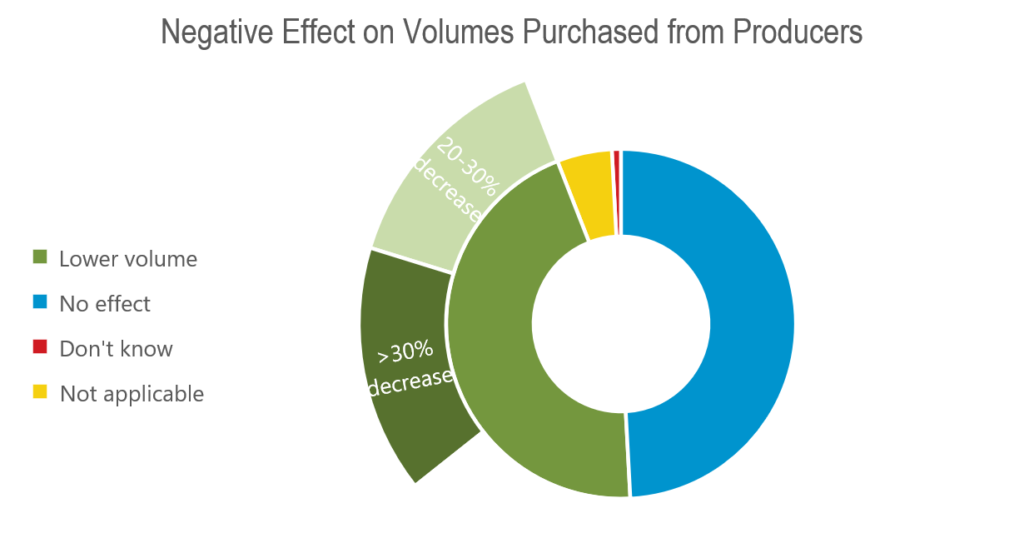
To ensure the safety of their community while keeping their businesses alive, 100% of surveyed clients had implemented new sanitary protocols. What’s more, 57% of surveyed clients had participated in Root Capital’s remote advisory services, receiving crucial training in financial forecasting, business planning, and safety standards for farmers and employees.
Disproportionate Impacts on Women and Women-led Businesses
Our second survey further illustrated how women are bearing the brunt of the pandemic’s impacts in rural communities. Eighty-one percent of respondents reported that women’s domestic responsibilities have increased more than men’s. Meanwhile, 45% of respondents who had to lay off workers say that these cuts disproportionately impacted women, especially in East Africa where the majority of macadamia nut processing employees are women. A similar proportion who reported loss of crops and income say that loss has fallen harder on women than men.
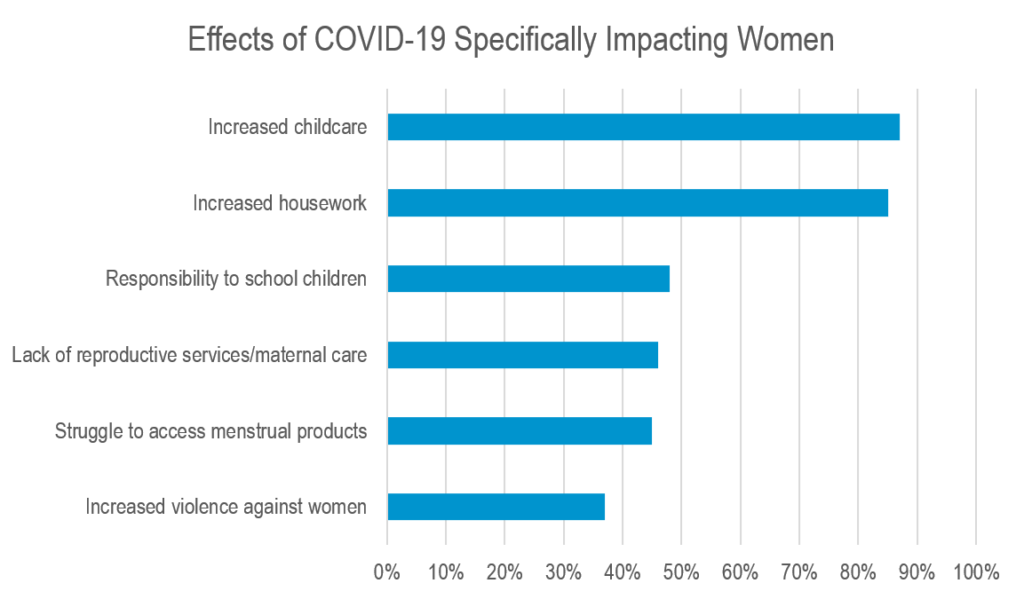
During normal times, women-led businesses face barriers to financing and training. We found that these businesses also face unique challenges during the pandemic, including disruption in buyer contracts (reported by 75% of women-led businesses compared to 62% of male-led businesses) and needing to decrease their investments in capital improvements or social programs due to COVID-19 (73% compared to 66%).
Helping rural communities withstand and recover from this pandemic requires a response that centers women. Of the 70% of clients with programming that responds to COVID-19, 45% say they accounted for the specific needs of women in the pandemic. Working with women-led and gender-inclusive businesses, Root Capital is designing responses that address women’s unique challenges.
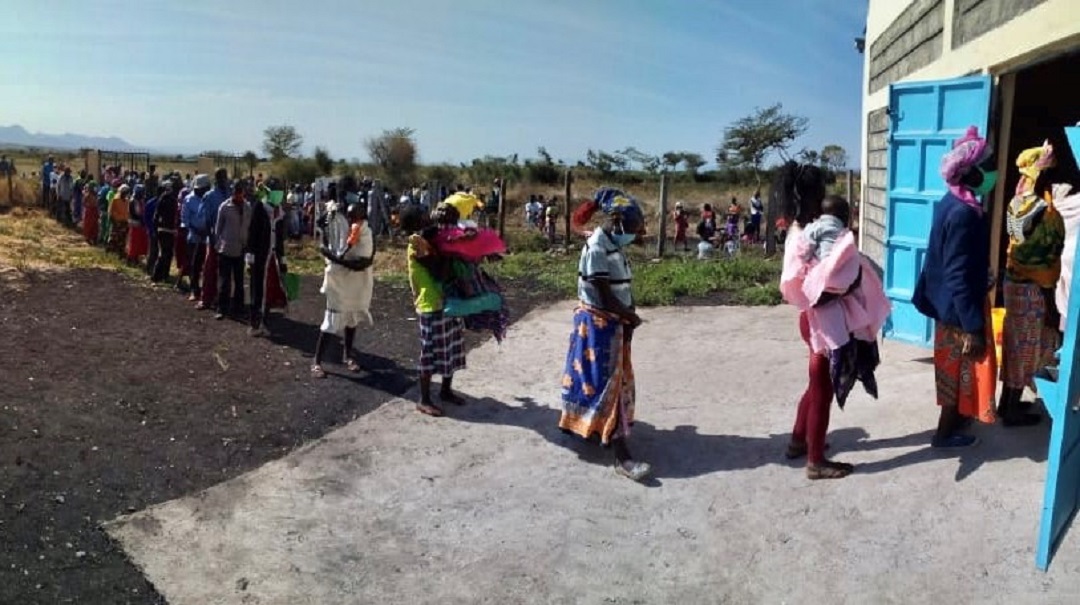
Resilient Businesses, Resilient Communities
While the results of this second client survey show a worsening situation in many rural communities, it also tells an important story about resilient agricultural businesses and how they’ve pivoted to support their farmers and employees in this uncertain time. These businesses are best-positioned to identify and address the impacts of the pandemic in rural communities—with the support of trusted partners like Root Capital.
Over the last several months, our clients have implemented innovative projects to protect their businesses and communities, but they know that much more work lies ahead. Eighty percent reported that they would put more programming into place, but lack the financial resources or training to do so. To learn more, read the full report of the survey’s findings. You can support these businesses and the farming families they serve by donating to Root Capital’s Rapid Response Fund today.


